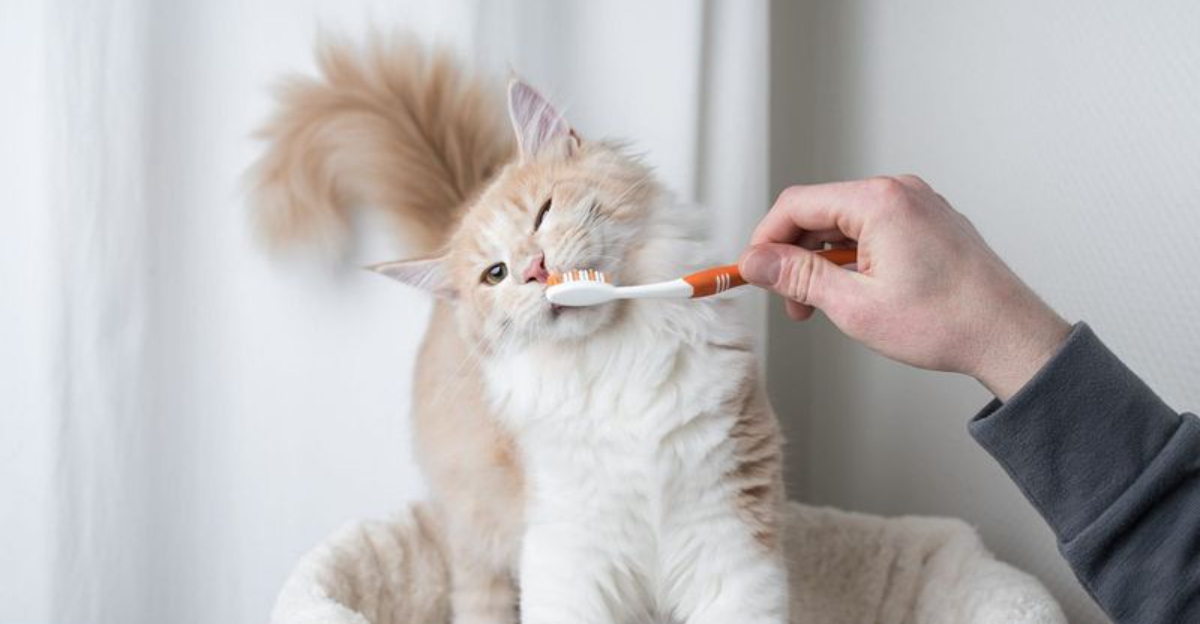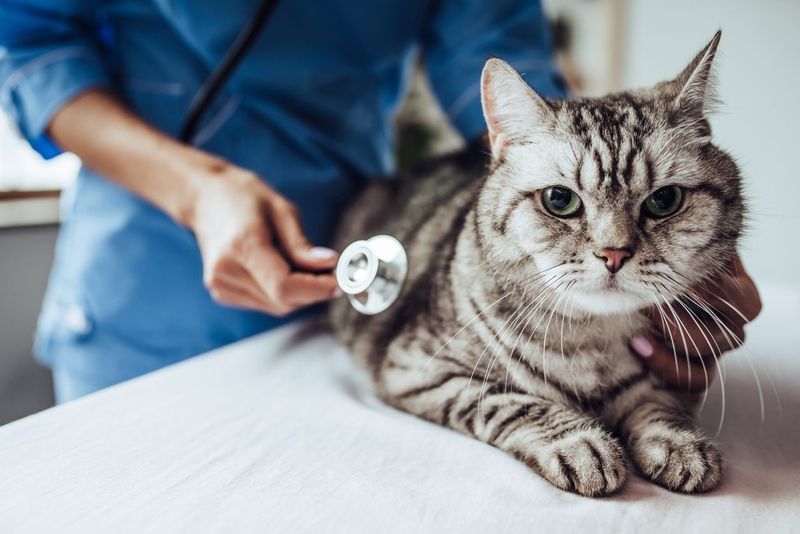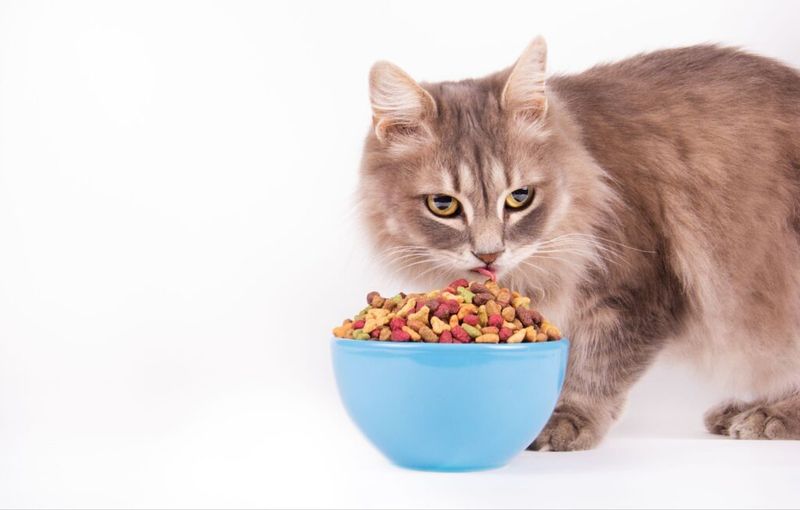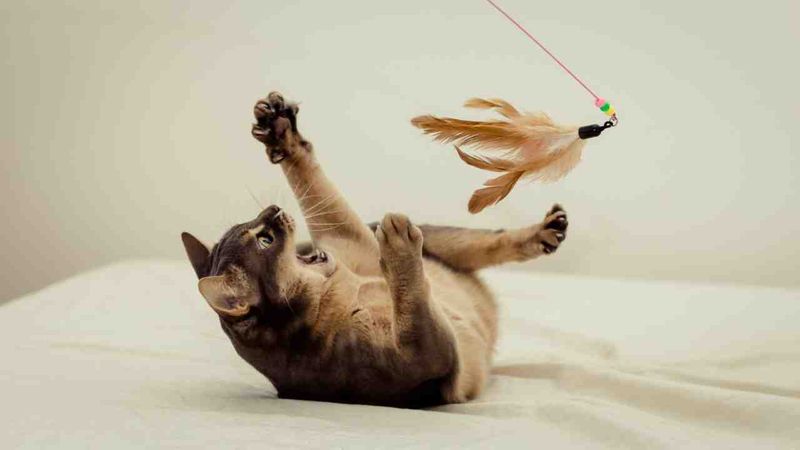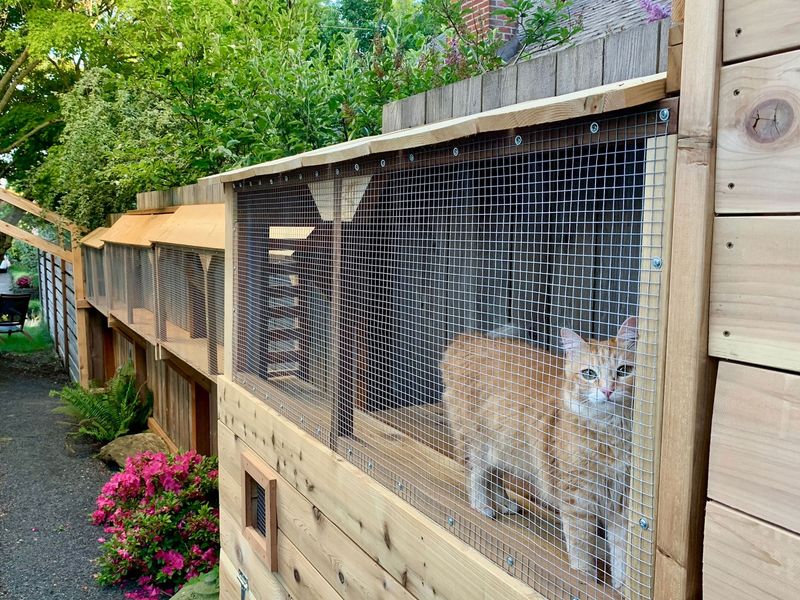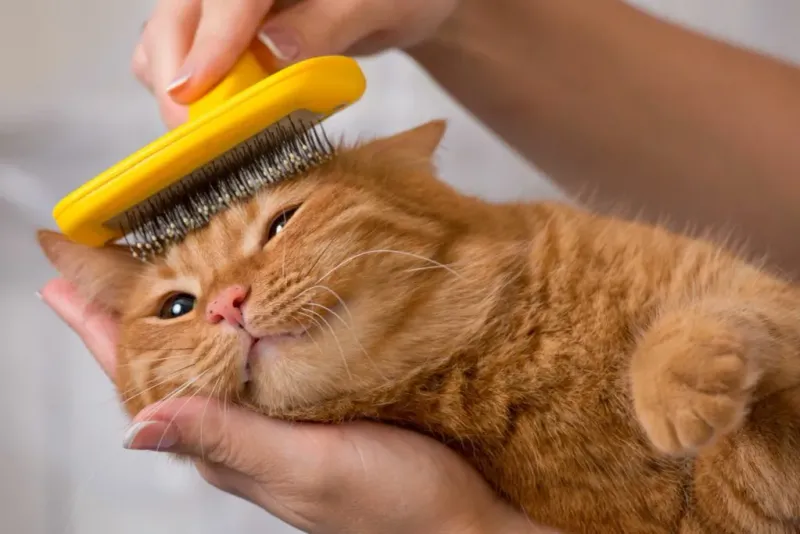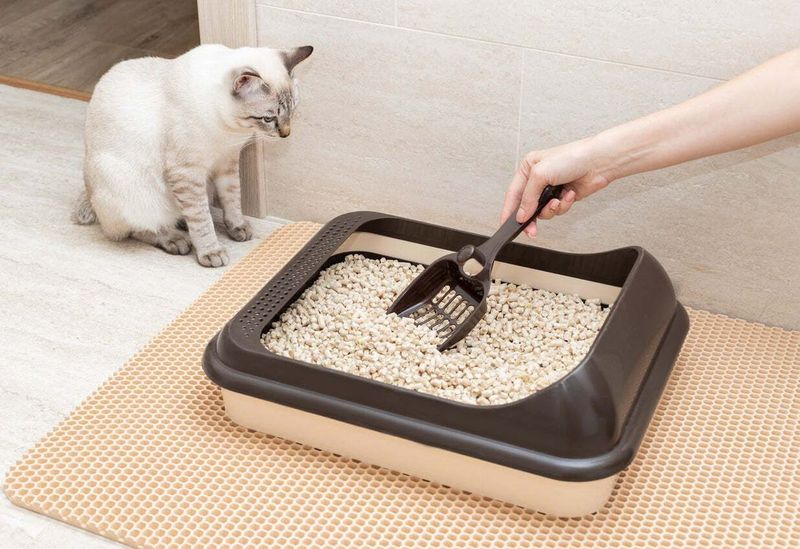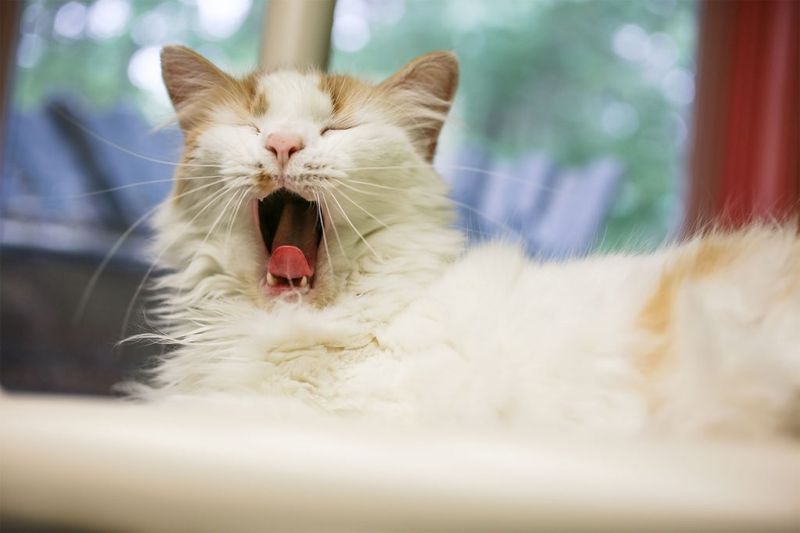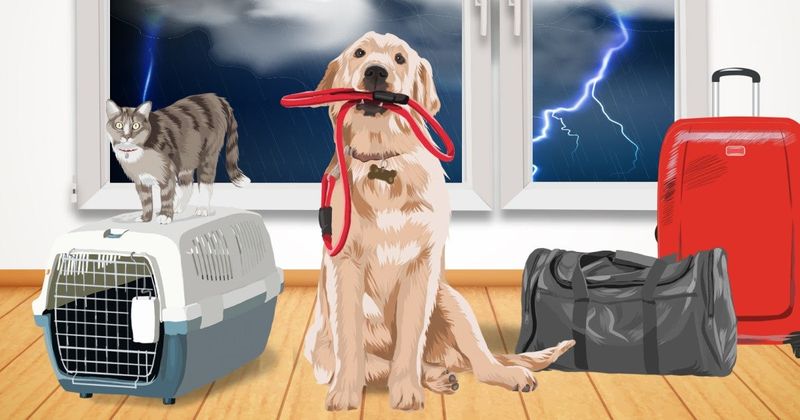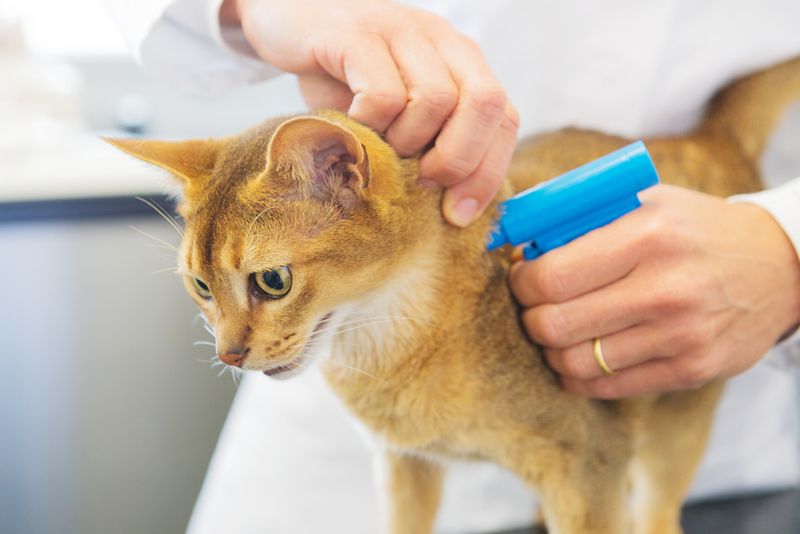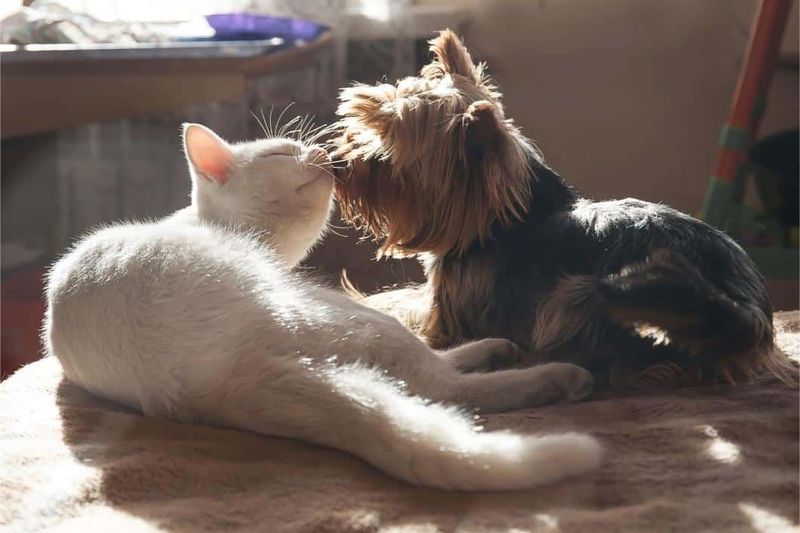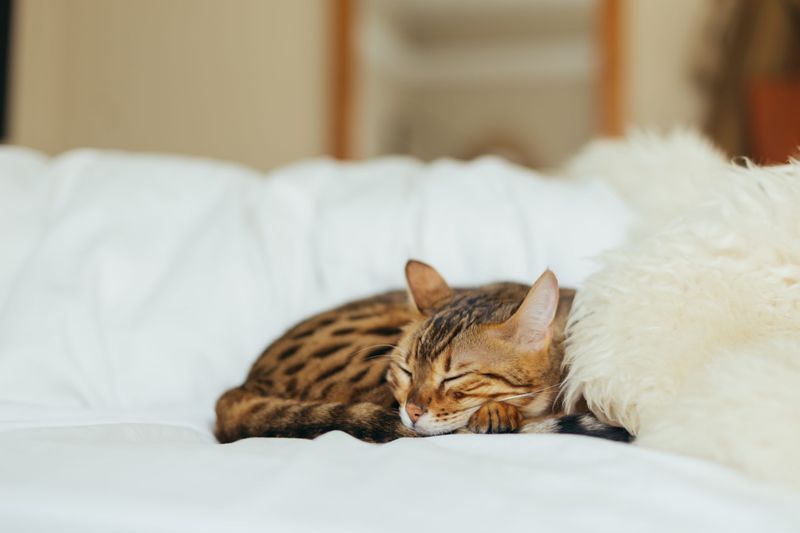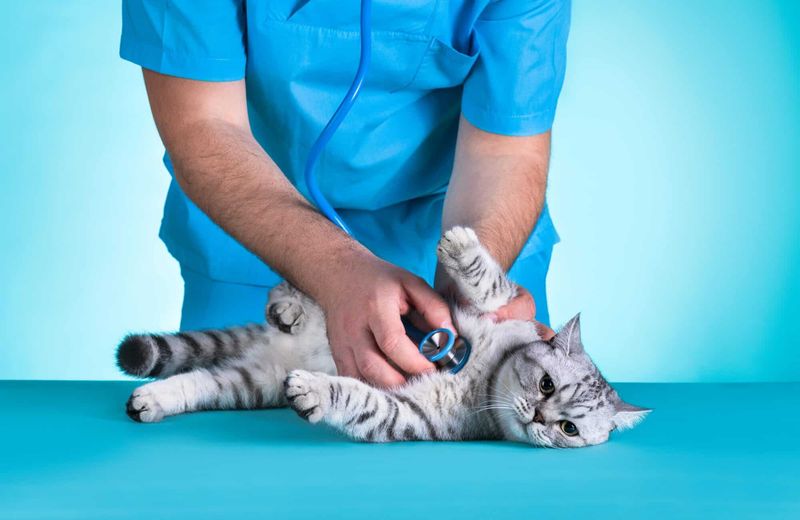📖 Table of Content:
Being a cat owner is about more than just feeding and cuddling—it’s a lifelong commitment to your pet’s well-being. In this blog, we highlight 13 essential habits that responsible cat owners consistently follow to keep their feline companions healthy, happy, and safe. From regular vet visits and proper nutrition to enrichment, grooming, and emotional care, these practices reflect the difference between just having a cat—and truly caring for one.
Whether you’re a first-time cat parent or looking to sharpen your feline care routine, this guide is packed with actionable tips and reminders to help you be the best cat guardian you can be.
1. Regular Vet Checkups
Every responsible cat owner knows the importance of regular veterinary visits. It’s not just about vaccines; these checkups help spot potential health issues early.
Regular vet visits ensure cats live healthier lives by catching underlying problems before they escalate. It also helps maintain vaccination schedules and discuss any behavioral concerns.
Moreover, these visits offer a chance to discuss dietary needs and lifestyle changes. The vet can provide valuable insights into your cat’s health and well-being, ensuring your feline family member thrives. Prioritizing these appointments strengthens the bond between you and your pet.
2. Proper Nutrition
Responsible cat owners prioritize proper nutrition, understanding its vital role in their cat’s health. Cats require a balanced diet rich in proteins and nutrients specific to their needs.
Choosing high-quality cat food tailored to their age, weight, and health needs is crucial. This ensures they receive the necessary vitamins and minerals.
Additionally, owners should be mindful of portion sizes to prevent obesity. Monitoring their dietary intake helps maintain healthy weight and energy levels. Discussing dietary options with a vet further ensures the best nutritional choices, promoting a vibrant and active lifestyle for their feline friend.
3. Play and Exercise
Cats may seem independent, but regular play and exercise are vital for their physical and mental health. Engaging in play strengthens the cat-owner bond and provides essential stimulation.
Interactive toys, like feather wands or laser pointers, can spark a cat’s hunting instincts. Regular exercise prevents obesity and related health issues, keeping cats agile and fit.
Creating a playful environment with climbing trees or tunnels further enhances their activity level. These activities encourage natural behaviors and keep them entertained, reducing stress and potential behavioral problems. Playtime is a joyful necessity for every cat.
4. Safe Outdoor Exploration
While cats are natural explorers, responsible owners ensure their outdoor adventures are safe. Using a leash or creating an enclosed outdoor space protects them from dangers.
Supervised outdoor time satisfies their curiosity without the risks of traffic, predators, or getting lost. A safe environment allows them to enjoy fresh air and exercise.
Additionally, vaccinations and flea control are crucial for outdoor cats. These precautions protect against diseases and parasites. Providing a safe outdoor exploration enriches their lives while keeping safety a top priority, balancing freedom with protection.
5. Regular Grooming
Grooming is more than aesthetic for cats; it’s essential for their health and comfort. Regular grooming reduces shedding and prevents matting, especially in long-haired breeds.
By brushing regularly, owners help distribute skin oils, promoting a healthy coat. Grooming sessions also provide an opportunity to check for skin issues or parasites.
Additionally, these sessions strengthen the bond between cat and owner. Establishing a grooming routine is a relaxing, enjoyable experience that enhances overall well-being and keeps cats looking their best. Responsible owners recognize grooming as a key aspect of feline care.
6. Clean Litter Box
Maintaining a clean litter box is fundamental for a cat’s hygiene and health. Responsible owners know that cats are meticulous creatures who appreciate a tidy bathroom.
Regular cleaning prevents odors and reduces the risk of infections. It also encourages consistent use, preventing accidents around the home.
Choosing the right type of litter and box size is equally important, catering to the cat’s preferences. A clean environment ensures comfort and satisfaction, reinforcing positive habits. This simple task is crucial for a happy, healthy cat and a harmonious home.
7. Provide Mental Stimulation
Mental stimulation is as vital as physical exercise for cats. Providing engaging activities prevents boredom and promotes mental agility.
Interactive toys, puzzle feeders, and training sessions challenge their minds. These activities mimic hunting behaviors, offering satisfying rewards and reducing stress.
Moreover, introducing new experiences or changing the environment keeps them alert and entertained. Responsible owners understand the importance of mental enrichment in enhancing their cat’s quality of life. By stimulating their minds, they encourage a lively, content feline companion.
8. Emergency Preparedness
Preparedness is a hallmark of responsible cat ownership. Having an emergency plan ensures your cat’s safety during unexpected events.
An emergency kit with food, water, medications, and important documents is essential. Pet carriers should be accessible for quick evacuations.
Regular updates to the kit reflect changing needs or circumstances. Responsible owners prepare for the unexpected, ensuring their cat’s security and well-being. This proactive approach provides peace of mind, knowing they can protect their feline friend in emergencies, highlighting their commitment to care and safety.
9. Dental Care
Dental health is often overlooked but crucial for a cat’s overall well-being. Regular brushing prevents plaque buildup and reduces the risk of dental diseases.
Introducing dental hygiene early helps cats acclimate to the routine. Specialized toothbrushes and toothpaste designed for cats ensure effectiveness and safety.
Additionally, dental treats or chews can complement regular brushing. Responsible owners prioritize this aspect of care, understanding its impact on their cat’s health. Maintaining dental hygiene ensures a healthy mouth and a happy, comfortable pet, preventing painful conditions and costly treatments.
10. Microchipping
Microchipping is a simple yet vital step in ensuring a cat’s safety. It provides a permanent form of identification, crucial if a cat gets lost.
The microchip, implanted under the skin, contains a unique ID linked to the owner’s contact information. It’s a quick, painless procedure performed by a vet.
Responsible cat owners understand that collars can be lost, while microchips offer a reliable backup. This proactive measure enhances recovery chances, offering peace of mind. Microchipping reflects a commitment to safeguarding a beloved pet’s welfare and ensuring their swift return if separated.
11. Socialization
Socialization is key to a well-adjusted cat, helping them feel comfortable around other animals and people. Early exposure to different environments and stimuli fosters confidence.
Introducing cats to various social situations prevents fear and anxiety, promoting positive behaviors. Controlled interactions with other pets build tolerance and companionship.
Responsible owners recognize the value of socialization in their cat’s development. Ensuring diverse experiences enriches their lives, making them more adaptable and friendly. A well-socialized cat is a pleasure to live with, showcasing the care and thoughtfulness of its owner.
12. Respecting Boundaries
Cats are known for their independent nature, and respecting their boundaries is crucial for a harmonious relationship. Understanding their cues and allowing space fosters trust.
Each cat has unique preferences for interaction. Observing their body language helps identify when they need solitude or affection.
Responsible cat owners honor these needs, ensuring a safe, comfortable environment. This respect strengthens the bond, showing appreciation for their individuality. Acknowledging and respecting a cat’s boundaries is essential for mutual respect and a joyful companionship, reflecting genuine care and understanding.
13. Routine Health Monitoring
Routine health monitoring is a proactive approach to feline care. Regularly checking for changes in weight, appetite, or behavior can indicate health issues.
Responsible owners keep track of their cat’s health metrics, such as weight and hydration levels, to catch early signs of illness.
These insights enable timely veterinary consultations, preventing complications. Maintaining health records assists in informed decision-making for treatments or lifestyle adjustments. Monitoring a cat’s health is an ongoing responsibility, demonstrating commitment to their well-being and ensuring a long, healthy life together.
